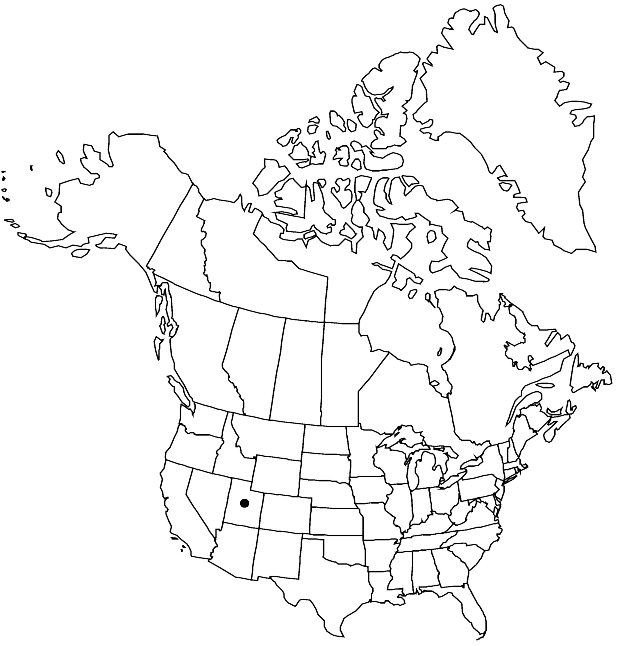Difference between revisions of "Physaria garrettii"
Novon 12: 323. 2002.
FNA>Volume Importer |
imported>Volume Importer |
||
| (6 intermediate revisions by 2 users not shown) | |||
| Line 8: | Line 8: | ||
}} | }} | ||
|common_names=Garrett’s bladderpod | |common_names=Garrett’s bladderpod | ||
| − | |basionyms={{Treatment/ID/ | + | |basionyms={{Treatment/ID/Basionym |
|name=Lesquerella garrettii | |name=Lesquerella garrettii | ||
|authority=Payson | |authority=Payson | ||
| + | |rank=species | ||
| + | |publication_title=Ann. Missouri Bot. Gard. | ||
| + | |publication_place=8: 213. 1922 | ||
}} | }} | ||
|synonyms= | |synonyms= | ||
| Line 28: | Line 31: | ||
|distribution=Utah. | |distribution=Utah. | ||
|discussion=<p>Of conservation concern.</p><!-- | |discussion=<p>Of conservation concern.</p><!-- | ||
| − | --><p>Physaria garrettii is known from the area of the Wasatch Mountains.</p> | + | --><p><i>Physaria garrettii</i> is known from the area of the Wasatch Mountains.</p> |
|tables= | |tables= | ||
|references= | |references= | ||
| Line 37: | Line 40: | ||
-->{{#Taxon: | -->{{#Taxon: | ||
name=Physaria garrettii | name=Physaria garrettii | ||
| − | |||
|authority=(Payson) O’Kane & Al-Shehbaz | |authority=(Payson) O’Kane & Al-Shehbaz | ||
|rank=species | |rank=species | ||
| Line 52: | Line 54: | ||
|publication year=2002 | |publication year=2002 | ||
|special status= | |special status= | ||
| − | |source xml=https:// | + | |source xml=https://bitbucket.org/aafc-mbb/fna-data-curation/src/2e0870ddd59836b60bcf96646a41e87ea5a5943a/coarse_grained_fna_xml/V7/V7_1056.xml |
|tribe=Brassicaceae tribe Physarieae | |tribe=Brassicaceae tribe Physarieae | ||
|genus=Physaria | |genus=Physaria | ||
Latest revision as of 22:30, 5 November 2020
Perennials; caudex simple or branched; densely pubescent, trichomes (sessile), 4–7-rayed, rays furcate or bifurcate, (smooth or, rarely, finely tuberculate). Stems simple or several from base, spreading, (unbranched, sparsely pubescent), to 1.5 dm. Basal leaves: blade narrowly elliptic or obovate, 1–3(–4) cm, margins entire or nearly so. Cauline leaves (sessile or shortly petiolate); blade narrowly obovate or oblanceolate, 0.4–1.2 cm, margins entire. Racemes loose, (few-flowered). Fruiting pedicels (spreading, straight or slightly curved), 4–7 mm. Flowers: sepals linear, lanceolate, or elliptic, 3.5–6.5 mm, (median pair thickened apically, cucullate); petals oblanceolate, 5.5–9(–10) mm. Fruits globose or subglobose, not or slightly compressed, 3.5–4.3 mm; valves densely pubescent, trichomes spreading, 3–6-rayed, (appearing shaggy); ovules 4–8 per ovary; style 4.5–7 mm. Seeds slightly flattened, (suborbicular).
Phenology: Flowering Jun–Aug.
Habitat: Rock crevices, rocky slopes, ridges
Elevation: 3000-3700 m
Discussion
Of conservation concern.
Physaria garrettii is known from the area of the Wasatch Mountains.
Selected References
None.
